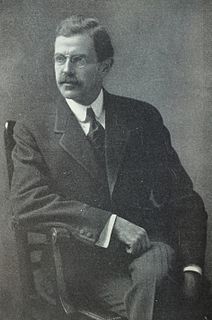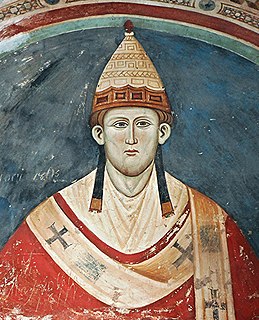A Quote by John Grier Hibben
A philosopher ... is not fairly judged by his eccentricities, nor by the frailties to which he is liable; still less should his philosophy as a whole fall into ill-repute because of those among its devotees who have stumbled into wells, or who aimlessly pass their lives in whetting their faculties and then neglecting to use them.
Related Quotes
The Pope should not flatter himself about his power nor should he rashly glory in his honor and high estate, because the less he is judged by man, the more he is judged by God. Still the less can the Roman Pontiff glory because he can be judged by men, or rather, can be shown to be already judged, if for example he should wither away into heresy; because he who does not believe is already judged, In such a case it should be said of him: 'If salt should lose its savor, it is good for nothing but to be cast out and trampled under foot by men.'
Of course, let us have peace, we cry, "but at the same time let us have normalcy, let us lose nothing, let our lives stand intact, let us know neither prison nor ill repute nor disruption of ties ... " There is no peace because there are no peacemakers. There are no makers of peace because the making of peace is at least as costly as the making of war - at least as exigent, at least as disruptive, at least as liable to bring disgrace and prison, and death in its wake.
Once you teach people to say what they do not understand, it is easy enough to get them to say anything you like. v One could wish no easier death than that of Socrates, calmly discussing philosophy with his friends; one could fear nothing worse than that of Jesus, dying in torment, among the insults, the mockery, the curses of the whole nation. In the midst of these terrible sufferings, Jesus prays for his cruel murderers. Yes, if the life and death of Socrates are those of a philosopher, the life and death of Christ are those of a God.
All the sciences have a relation, greater or less, to human nature; and...however wide any of them may seem to run from it, they still return back by one passage or another. Even Mathematics, Natural Philosophy, and Natural Religion, are in some measure dependent on the science of MAN; since they lie under the cognizance of men, and are judged of by their powers and faculties.
The philosopher believes that the value of his philosophy lies in the whole, in the building: posterity discovers it in the bricks with which he built and which are then often used again for better building: in the fact, that is to say, that building can be destroyed and nonetheless possess value as material.
In the latter sense, a man has a property in his opinions and the free communication of them. He has a property of peculiar value in his religious opinions, and in the profession and practice dictated by them. He has an equal property in the free use of his faculties and free choice of the objects on which to employ them. In a word, as a man is said to have a right to his property, he may be equally said to have a property in his rights.
A father may turn his back on his child, brothers and sisters may become inveterate enemies, husbands may desert their wives, wives their husbands. But a mother's love endures through all; in good repute, in bad repute, in the face of the world's condemnation, a mother still loves on, and still hopes that her child may turn from his evil ways, and repent; still she remembers the infant smiles that once filled her bosom with rapture, the merry laugh, the joyful shout of his childhood, the opening promise of his youth; and she can never be brought to think him all unworthy.
The Unitarian Church has done more than any other church to substitute character for creed, and to say that a man should be judged by his spirit; by the climate of his heart; by the autumn of his generosity; by the spring of his hope; that he should be judged by what he does; by the influence that he exerts, rather than by the mythology he may believe.
I have always taken as the standard of the mode of teaching and writing, not the abstract, particular, professional philosopher, but universal man, that I have regarded man as the criterion of truth, and not this or that founder of a system, and have from the first placed the highest excellence of the philosopher in this, that he abstains, both as a man and as an author, from the ostentation of philosophy, i. e., that he is a philosopher only in reality, not formally, that he is a quiet philosopher, not a loud and still less a brawling one.
































